This guide will help you discover effective stress-busting techniques that contribute to clear, radiant skin. Stress can wreak havoc on your complexion, leading to breakouts and dullness. By implementing these simple strategies into your routine, you can promote relaxation and enhance your skin’s natural glow. Whether it’s through mindful practices, dietary changes, or skincare rituals, you’ll learn how to take control of your stress and achieve the healthy, vibrant skin you desire.
Table of Contents
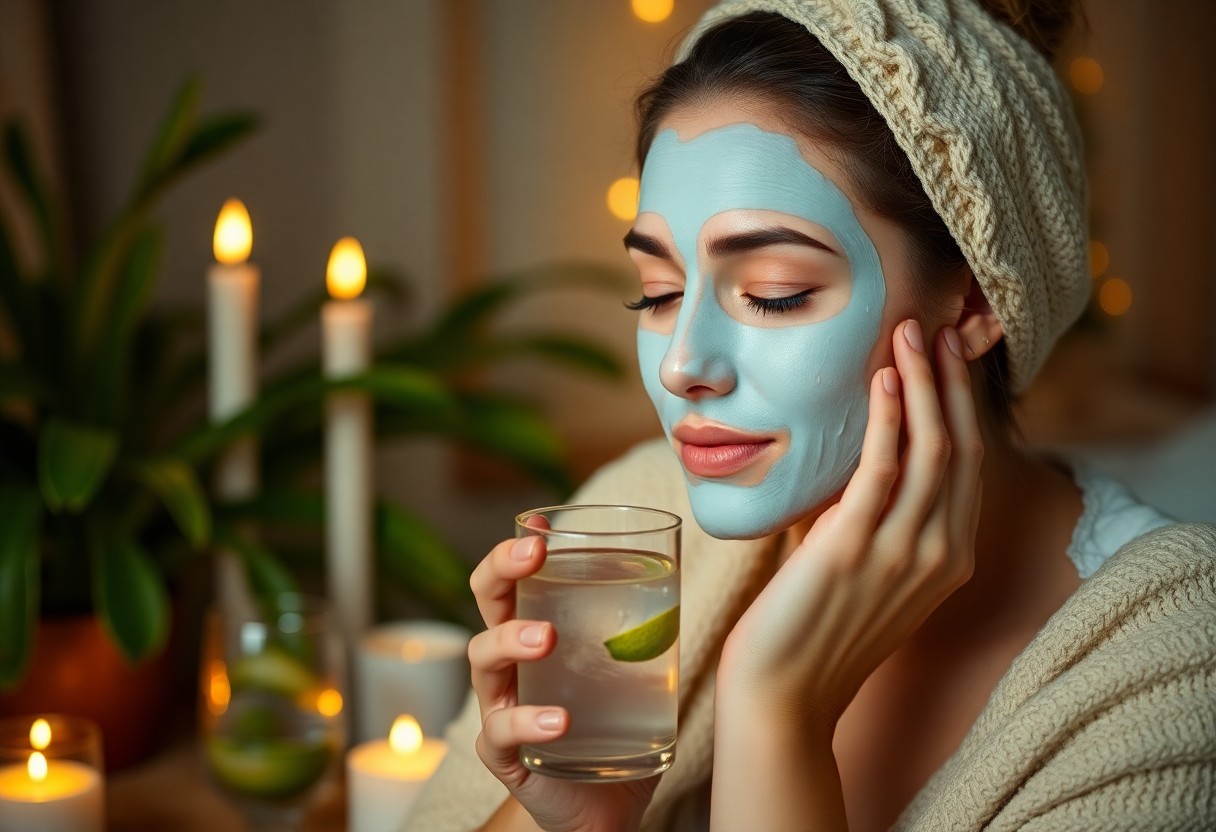
Key Takeaways:
- Hydration: Drinking plenty of water helps maintain skin elasticity and reduces the appearance of stress-related blemishes.
- Mindful Breathing: Practicing deep breathing exercises can lower stress levels, leading to a clearer complexion.
- Regular Exercise: Engaging in physical activity enhances blood flow, promoting healthier skin by delivering imperative nutrients.
- Quality Sleep: Prioritizing adequate sleep allows skin cells to repair and regenerate, enhancing overall skin radiance.
- Natural Skincare: Utilizing gentle, natural skincare products can prevent irritation and support a calm skin environment amidst stress.
Understanding Stress and Its Effects on Skin
Acknowledging the connection between your mental state and the health of your skin can significantly empower you in your skincare journey. As you explore this connection, you’ll find that stress, whether it’s acute or chronic, can manifest itself in various ways on your skin. Types of stress can be classified broadly into two categories: emotional and physical. Emotional stress often stems from daily pressures such as work deadlines, relationship woes, or financial concerns. Physical stress may arise from factors like illness, lack of sleep, or an unbalanced diet. Understanding these types can help you identify root causes and address them effectively. For more tips, explore 5 Surprising Ways Stress Worsens Your Skin.
Types of Stress
| Type | Examples |
|---|---|
| Emotional Stress | Work deadlines, relationship worries, financial concerns |
| Physical Stress | Illness, lack of sleep, unbalanced diet |
| Acute Stress | Immediate, short-term pressure events |
| Chronic Stress | Long-term pressures that affect daily well-being |
| Health Effects | Affects skin conditions like acne, eczema, and psoriasis |
Perceiving stressors appropriately is necessary for maintaining not just your mental health, but also the health of your skin. When your body is under stress, it releases hormones like cortisol, which can lead to increased oil production and inflammation in your skin. This direct connection underscores the importance of managing stress through practical techniques. Learn more in 5 Ways to Balance Stress and Skin Health.
Factors Contributing to Skin Stress
Now, considering various environmental and lifestyle elements is key in understanding how stress impacts your skin. External factors such as pollution, climate changes, and even your skincare products can wreak havoc when combined with emotional stress. Furthermore, personal habits including poor diet, lack of exercise, and insufficient hydration can exacerbate skin problems. Such conditions can lead to a vicious cycle, weakening your skin’s natural defenses and making it more susceptible to stress-related breakouts. Discover 5 Everyday Habits That Damage Your Skin for more insights.
Key Contributing Factors
- Pollution: Contributes to skin irritation and premature aging
- Poor Diet: Can lead to deficiencies that weaken your skin
- Lack of Exercise: Reduces blood flow and skin vitality
- Insufficient Hydration: Leads to dullness and dryness
- Skincare Products: Usage of irritants can aggravate sensitive skin
As you look deeper into these factors, consider how manageable small changes in your environment or habits can make a significant difference. Often, insufficient water intake or a diet high in processed foods contributes to skin stress. Assume that modifying these aspects, alongside stress management techniques, can lead to remarkable improvements in the overall radiance and health of your skin. Explore 5 Nutritional Hacks for Glowing Skin for actionable advice.
Actionable Tips
- Dietary Changes: Opt for nutrient-rich foods
- Exercise Routine: Regular activity boosts circulation
- Hydration: Drinking adequate water keeps skin plump
- Quality Products: Choosing gentle skincare can prevent irritation
- Stress Management: Incorporating relaxation techniques
Effects of stress on your skin can vary, but they are often detrimental and manifest as conditions such as increased acne, eczema, or even the early onset of wrinkles. Recognizing and understanding these stress-induced skin issues allows you to take actionable steps towards healing. Strengthen your knowledge about this relationship, and you will not only enhance your skincare routine but boost your overall well-being.
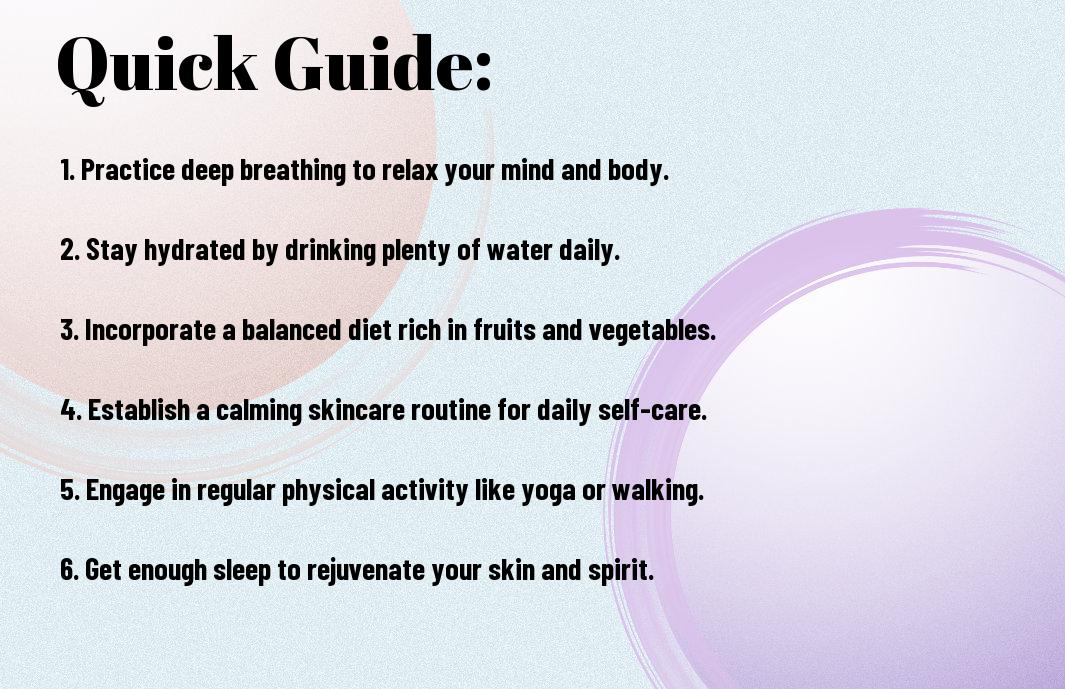
Simple Stress-Busting Techniques
There’s no denying that stress can wreak havoc on your skin, leading to issues like breakouts and premature aging. To help you maintain a radiant complexion, it’s necessary to incorporate stress-busting techniques into your daily routine. Here are some simple yet effective methods you can easily integrate into your life.
Step-by-Step Techniques for Everyday Use
Even small changes can yield significant benefits. Below is a table of straightforward techniques you can implement daily to reduce stress and boost your skin’s health.
| Technique | Description |
|---|---|
| Deep Breathing | Take a few minutes to inhale deeply and exhale slowly to calm your mind. |
| Morning Stretch | Incorporate gentle stretching into your morning routine to relieve tension. |
| Mindful Meditation | Spend 5–10 minutes in meditation to enhance mental clarity and relaxation. |
| Nature Walks | Take walks outdoors to soak in the healing benefits of nature. |
Tips for Sustainable Stress Management
Little adjustments to your lifestyle can make a world of difference in managing stress and maintaining healthy, vibrant skin. Here are some tips that can help you adopt a sustainable approach to stress relief:
- Practice mindfulness through meditation or yoga.
- Engage in regular physical activity to release endorphins.
- Stay connected with supportive friends and family.
This holistic approach can create a positive feedback loop, reducing stress and promoting a clearer complexion.
Additionally, integrating practices like journaling or a consistent sleep schedule can further enhance your stress management efforts. Opt for activities that you enjoy to make them sustainable and effective. Here are a few more strategies to consider:
- Establish a healthy diet rich in antioxidants for skin health.
- Limit intake of caffeine and alcohol, which can exacerbate stress.
- Seek professional help if you feel overwhelmed.
This comprehensive approach allows you to address stress in a meaningful way, ensuring that both your mind and skin thrive in harmony.
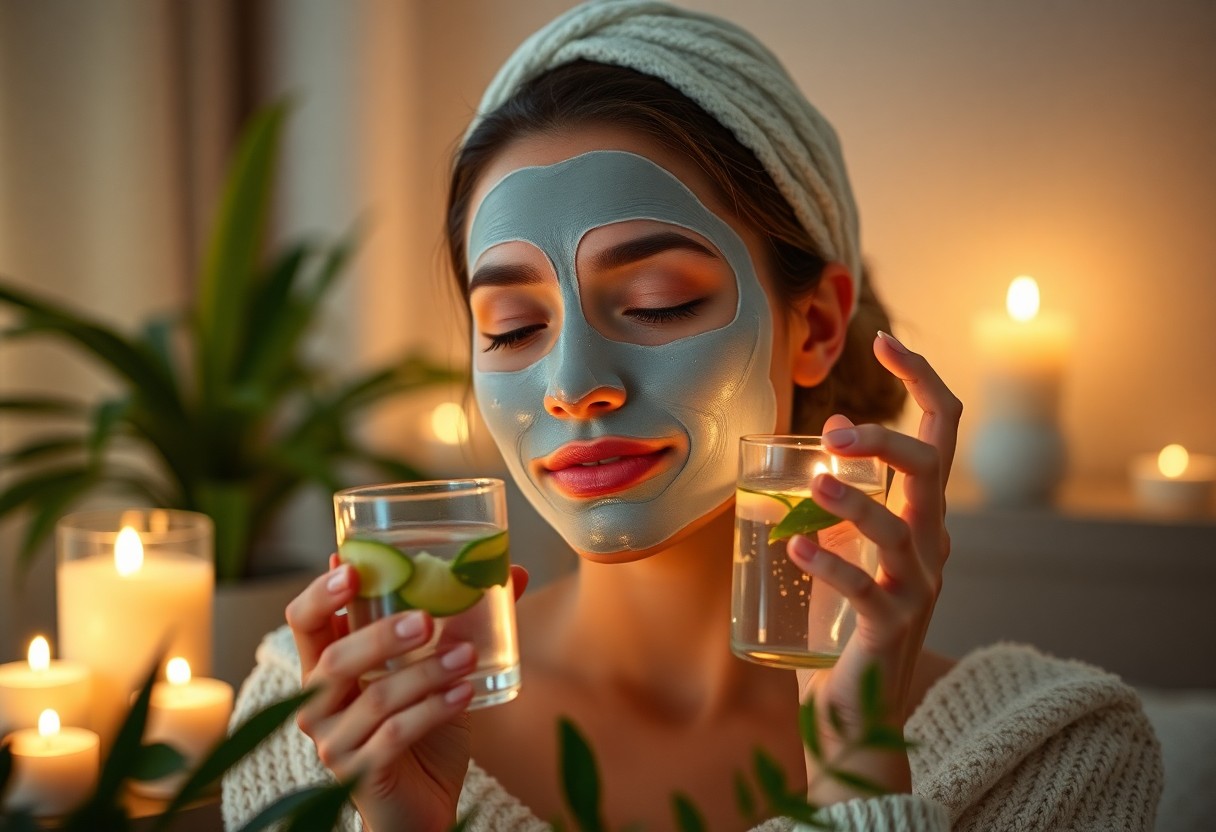
Pros and Cons of Various Techniques
Despite the multitude of stress-busting techniques available, you should carefully consider their pros and cons to determine what might work best for you. Each technique has its unique benefits and potential drawbacks, making it vital to evaluate how they fit into your lifestyle and preferences. Below is an overview of different methods and their respective advantages and disadvantages.
Pros and Cons of Various Techniques
| Technique | Pros | Cons |
|---|---|---|
| Meditation | Reduces stress, improves focus | Requires time and practice |
| Yoga | Enhances flexibility, promotes relaxation | May need guidance for beginners |
| Aromatherapy | Increases mood, promotes calm | Effects can be temporary |
| Exercise | Boosts endorphins, improves overall health | Time-consuming, requires motivation |
| Massage | Relieves tension, enhances well-being | Can be costly, not always accessible |
| Breathing exercises | Quick stress relief, easy to do | May not be effective for everyone |
| Herbal teas | Natural ingredients, soothing | Potential for allergies, interactions with medications |
| Sleep hygiene | Improves skin and overall health | Requires consistent effort |
| Mindfulness | Enhances self-awareness, reduces anxiety | Can be challenging to maintain |
| Journaling | Clarifies thoughts, emotional release | May require daily commitment |
If you’re looking for additional Stress-Relief Techniques for Radiant Skin, understanding various techniques and how they impact your stress levels will contribute significantly to achieving healthier skin.
Natural Remedies vs. Commercial Products
Any skincare routine can benefit from the choice between natural remedies and commercial products. Natural remedies often include ingredients like aloe vera, honey, or vital oils, which can be soothing and gentle on the skin. These choices usually come with fewer chemicals and additives, making them suitable for those with sensitive skin. However, keep in mind that not all natural remedies have scientifically proven results, and their efficacy can vary greatly from person to person. For more insight, check out 5 Natural Ingredients That May Save Your Skin.
On the other hand, commercial products often identify precise issues, such as acne or dryness, and promise quick results backed by extensive research. While they can be effective in addressing specific concerns, they often contain synthetic ingredients that may irritate your skin or cause long-term damage. Choosing between the two ultimately depends on your personal preferences, skin type, and specific concerns. Learn more by reading 5 Commercial Products You Should Use with Caution.
Short-Term vs. Long-Term Solutions
There’s a significant difference between short-term and long-term solutions when it comes to stress management and skincare. Short-term solutions often involve quick fixes that provide immediate relief, such as a facial, quick meditation sessions, or short workouts. While these can refresh and rejuvenate your skin temporarily, they may not achieve lasting results. In contrast, long-term solutions, such as consistent exercise, diet changes, or a stable skincare routine, contribute to healthy skin and overall well-being over time, necessitating a commitment to your self-care practices. Explore 5 Quick Fixes vs. 5 Long-Term Skin Strategies for an in-depth comparison.
Remedies for short-term stress can give you a temporary boost, but they lack sustainability. Engaging in practices like mindfulness and establishing a balanced lifestyle can lead to more permanent changes in your skin’s appearance and stress levels. It’s important to weigh your options carefully and choose methods that align with your long-term goals for both your skin and mental health. For a detailed guide, read 5 Habits That Transform Skin Over Time.
Final Words
From above, you can see how simple stress-busting techniques can profoundly impact the health and appearance of your skin. By incorporating practices such as mindful breathing, regular exercise, and adequate sleep into your routine, you can significantly reduce stress levels and promote a radiant complexion. These habits not only enhance your overall well-being but also serve to nourish your skin from within, creating a beautiful glow that reflects your inner peace.
Embracing these techniques doesn’t have to be overwhelming. Start by integrating one or two practices into your daily life and gradually build upon them as you see positive changes in your skin and mental state. You have the power to transform your stress into self-care, leading to healthier skin and a more confident you. As you prioritize your well-being, your skin will thank you by looking vibrant and refreshed.
FAQ:
Q: What are some simple stress-busting techniques that can benefit my skin?
A: Some effective stress-busting techniques include practicing mindfulness and meditation, engaging in regular physical activity like walking or yoga, using breathing exercises to promote relaxation, incorporating hobbies that bring joy and distraction, and ensuring a balanced diet rich in antioxidants. These activities can help reduce stress levels, which may lead to healthier and more radiant skin.
Q: How does stress affect my skin’s appearance?
A: Stress can trigger a variety of skin issues such as acne, dryness, and premature aging. When you experience stress, your body releases hormones like cortisol, which can increase oil production and lead to breakouts. Additionally, stress may disrupt your skin’s natural barrier function, leading to dryness and an overall dull complexion. Tackling stress can help improve skin appearance.
Q: Can regular exercise help in managing stress and improving skin health?
A: Yes, regular exercise is a fantastic way to manage stress while benefiting your skin. Physical activity stimulates circulation, allowing blood to flow to the skin, bringing nourishment and oxygen. Exercise also helps in releasing endorphins, which are hormones that elevate mood and reduce stress. Sweating during workouts can also aid in clearing out impurities from your pores.
Q: Why is a balanced diet important for stress management and skin health?
A: A balanced diet plays a significant role in both managing stress and maintaining skin health. Foods rich in vitamins, minerals, and antioxidants help combat oxidative stress in the body. Including fruits, vegetables, whole grains, and healthy fats can support your body’s stress response while promoting skin elasticity and brightness. Hydration also enhances skin appearance and contributes to overall well-being.
Q: Are there specific mindfulness techniques I can practice to improve my skin’s appearance?
A: Certainly! Techniques such as focused breathing, body scans, or guided visualization can help lower stress levels. Journaling your thoughts and feelings can also provide insight and emotional relief. These mindfulness practices not only promote relaxation but can also enhance your overall skin health by reducing the stress-induced hormonal imbalance that affects skin clarity and vitality.






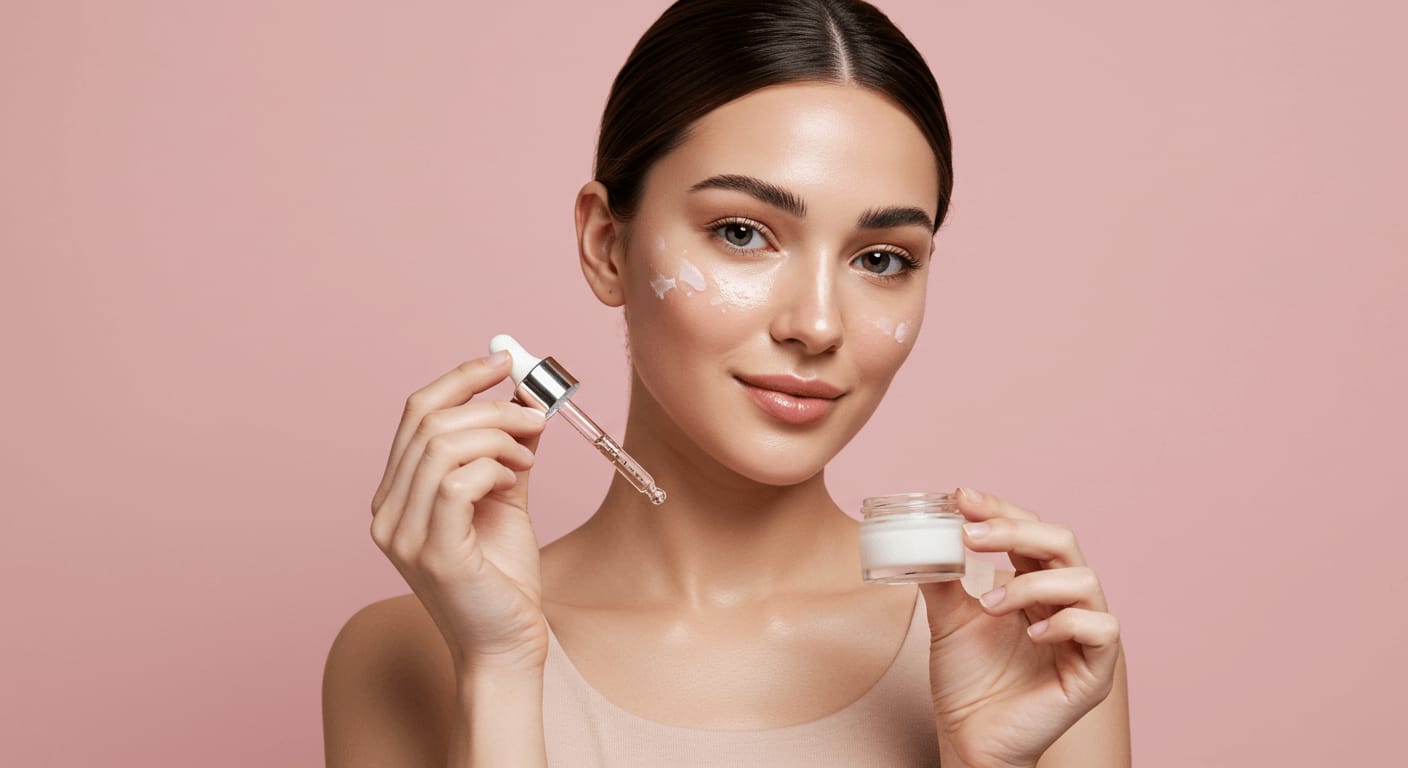

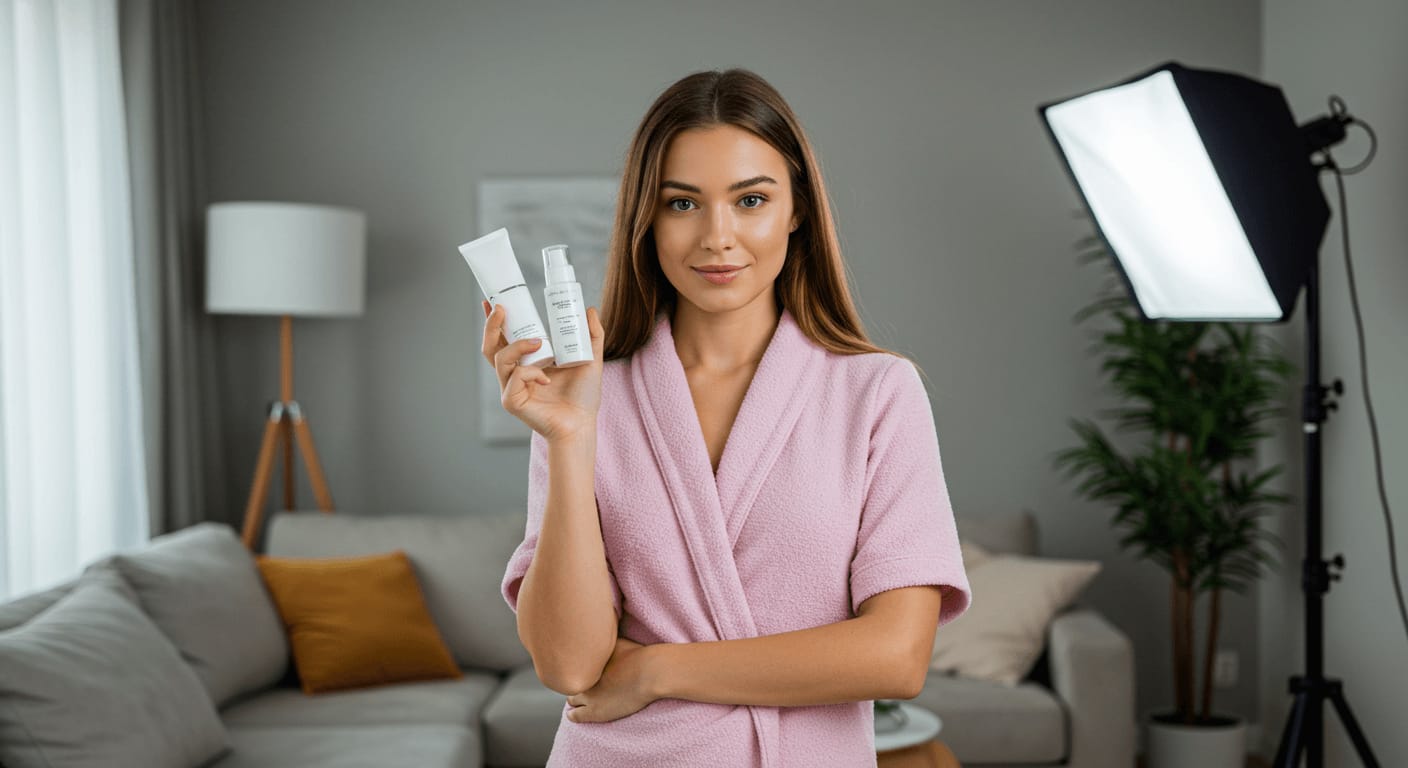

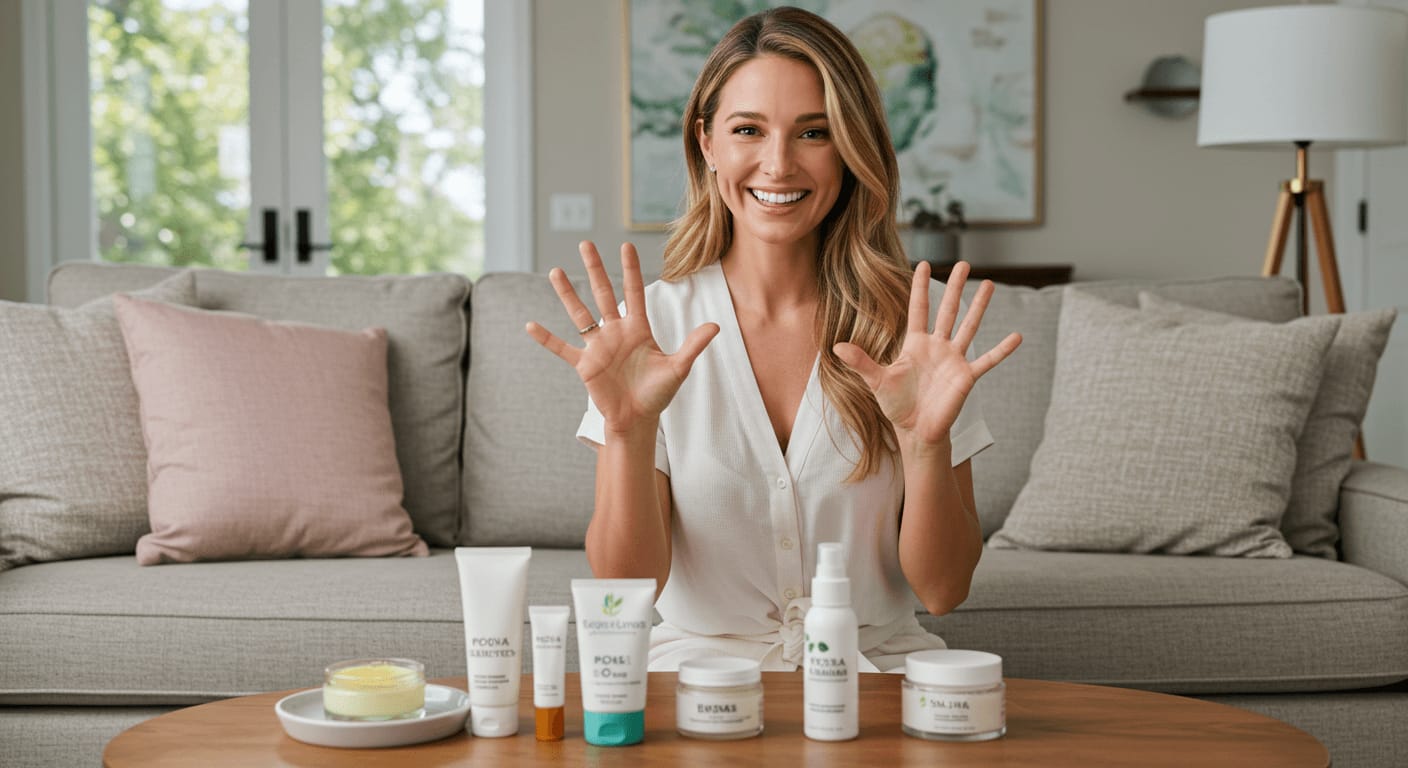

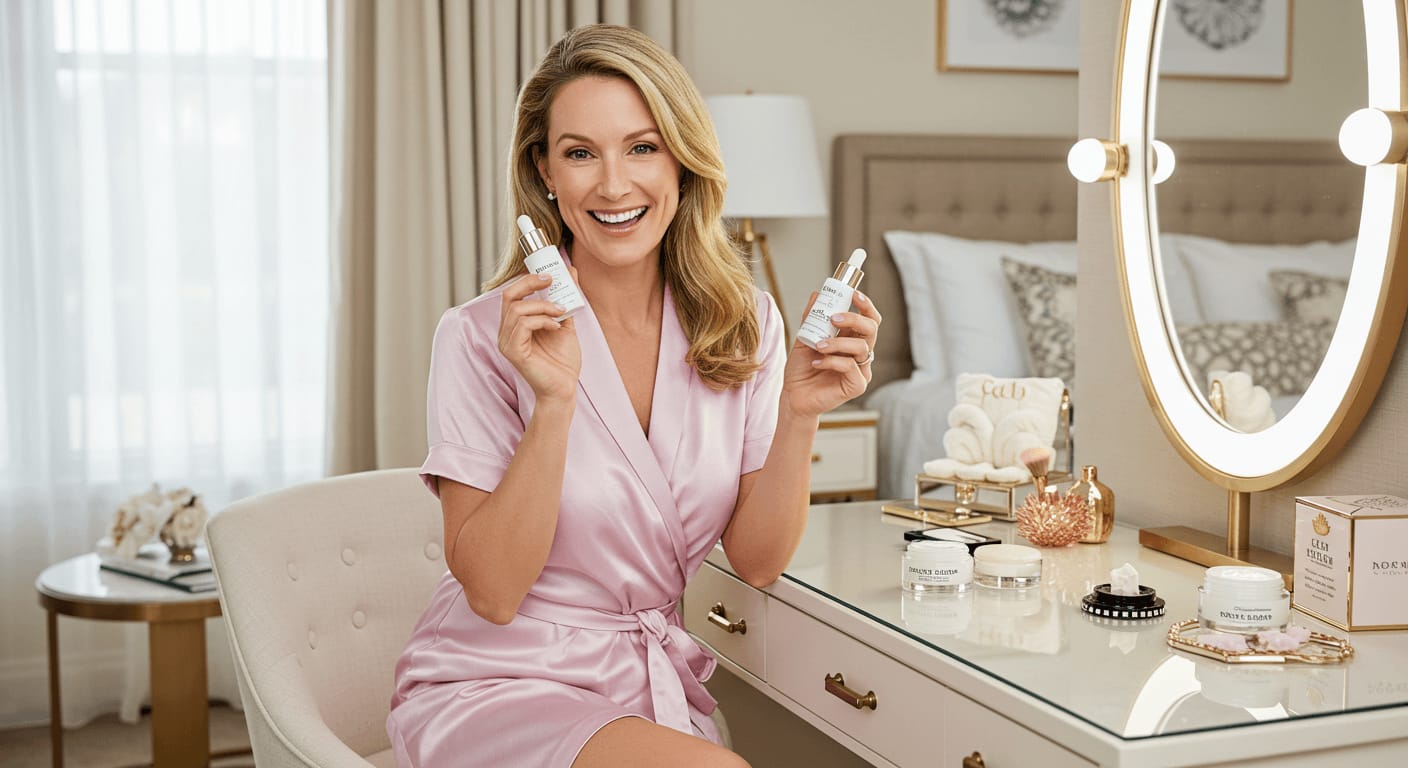

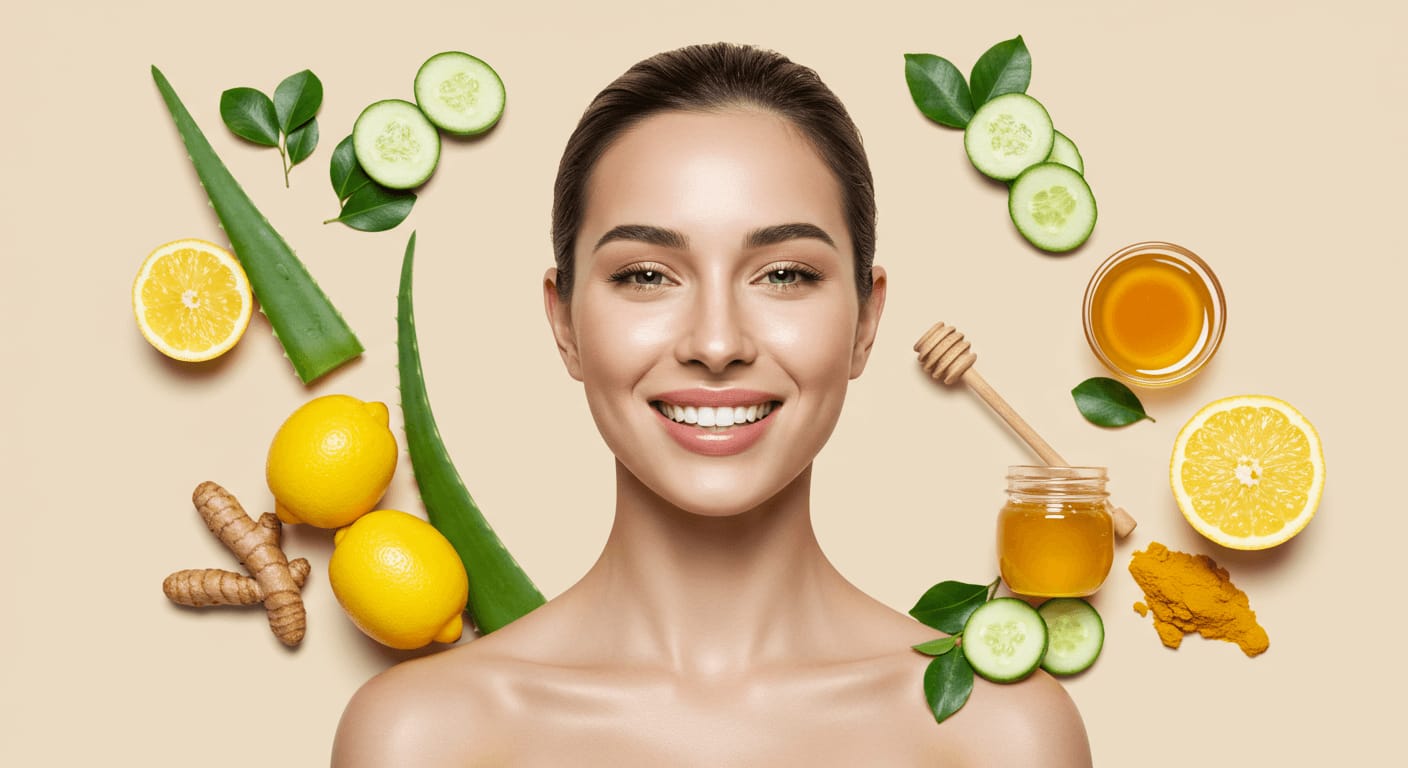

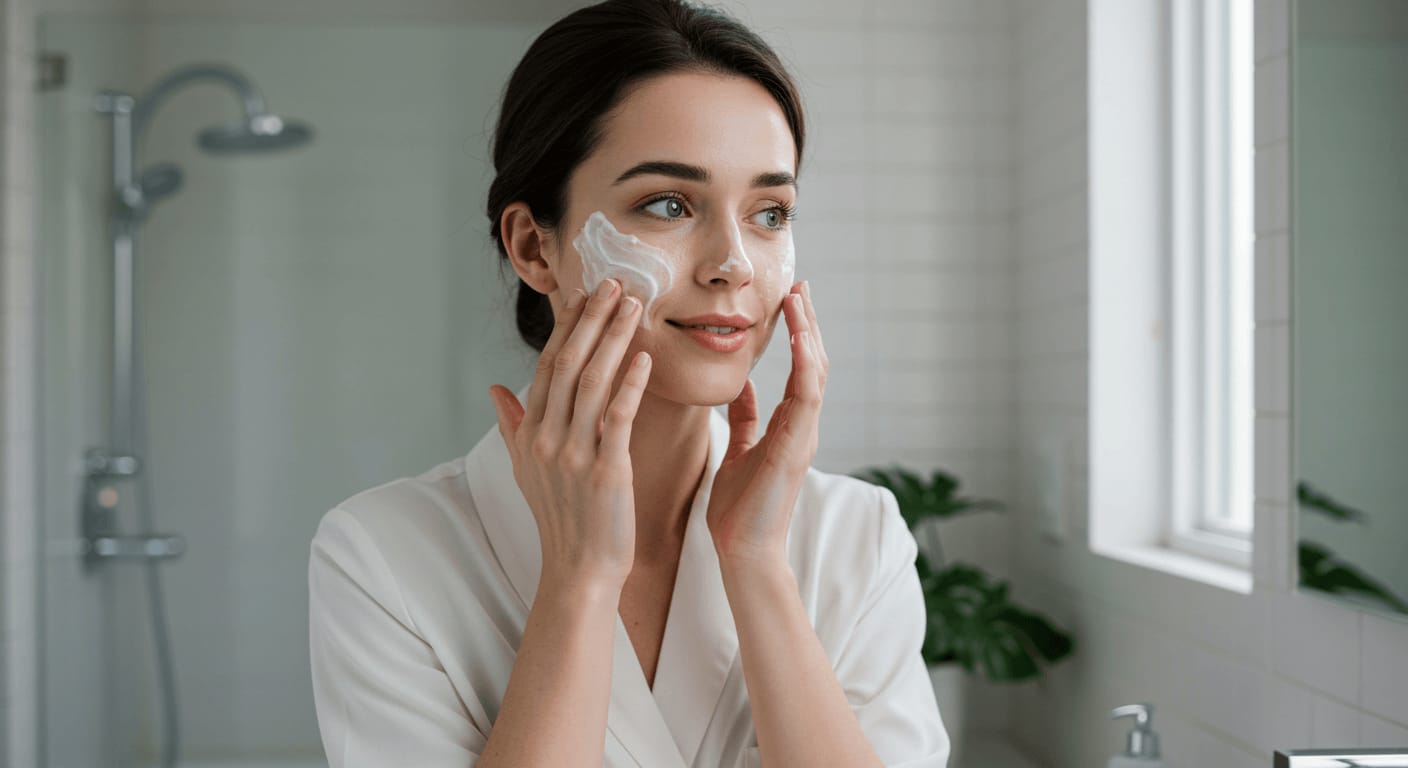








0 Comments
Trackbacks/Pingbacks